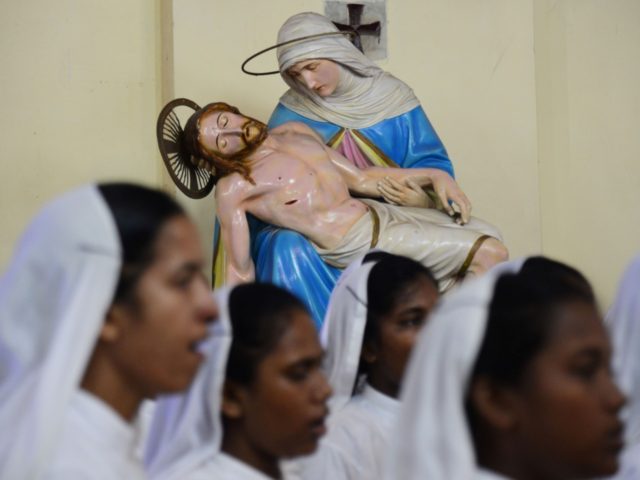ROME — The Pontifical Council for Interreligious Dialogue sent greetings to Hindus around the world Monday, wishing them a fruitful feast of Deepavali, to be celebrated on October 27.
“May this festival of lights illumine your hearts and homes and bring to your families and communities joy and happiness, peace and prosperity. At the same time, may it strengthen your spirit of fraternity with one another,” the greeting runs.
We live at a time when efforts are being made toward “interreligious and intercultural dialogue, cooperation and fraternal solidarity,” the message notes.
“On the other hand, there is apathy, indifference and even hatred among some religious people towards others,” it states. “This is often caused by a failure to recognize the ‘other’ as a brother or sister. Such an attitude can arise from misguided, ungenerous or unsympathetic sentiments, which upset and unsettle the very fabric of harmonious coexistence in society.”
In point of fact, crimes against Christians in India have shot up this year, increasing by 57 percent during the first two months of 2019 over the same period in 2018.
During January and February, 77 incidents of “hate and targeted violence against Christians” were documented in the majority Hindu nation, as compared with the 49 cases recorded during the same period last year, according to the Religious Liberty Commission of the Evangelical Fellowship of India (EFI).
In its message Monday, the Pontifical Council declared that “every individual, particularly Christians and Hindus,” are called to be “builders of fraternity and peaceful coexistence wherever they are,” while suggesting that all religions inspire people to love one another.
Religion “fundamentally inspires us to see in the other a brother or sister to be supported and loved,” the text states, and teaches us “to respect the inviolable dignity and the inalienable rights of others without any unwarranted bias towards their creed or culture.”
“As such, living in a spirit of fraternity and fellowship through constant dialogue should be a natural corollary of being a religious person, Hindu or Christian,” it reads.
Prior to being elected Pope Benedict XVI, Joseph Ratzinger wrote extensively on interreligious dialogue, and in particular about the dangers inherent in seeing all religions as fundamentally equal and in looking to eastern religions to complement or complete Christianity.
In his 2003 work Truth and Tolerance: Christian Belief and World Religions, Ratzinger said that the “a-religious and pragmatic relativism of Europe and America can borrow a kind of consecration from India, which seems to give its renunciation of dogma the dignity of a heightened reverence for the mystery of God and of man.”
“Conversely, the way that European and American thinking has turned back to India’s philosophical and theological vision has the effect of further strengthening that relativizing of all religious figures which is part of India’s heritage,” he warned.
“Thus it now actually seems imperative in India, even for Christian theology, to extract from its particularity the figure of Christ, regarded as Western, and to set it beside Indian redemption myths as if it were of similar status: the historical Jesus, so people now think, is actually no more uniquely the Logos than any other savior figures from history are.”
“The fact that here, in the context of the encounter between cultures, relativism seems appropriate as the true philosophy of humanity gives it (as we have already suggested) such an appreciable impact, both in East and West, that it hardly seems possible to offer further resistance,” he said.
The real problem, Ratzinger noted, was that nowadays religions “are seen as being all of the same kind. But that is by no means the case. There are in fact sick and degenerate forms of religion, which do not edify people but alienate them.”
In Hinduism “there are some marvelous elements — but there are also negative aspects: involvement with the caste system; suttee [self immolation] for widows, which developed from beginnings that were merely symbolic; offshoots of the cult of the goddess Sakti — all these might be mentioned, to give just a little idea,” he wrote.
So in the Indian religious cosmos, “there are very different forms: very high and pure ones that are marked by the idea of love, but also wholly gruesome ones that include ritual murder,” he wrote.

COMMENTS
Please let us know if you're having issues with commenting.